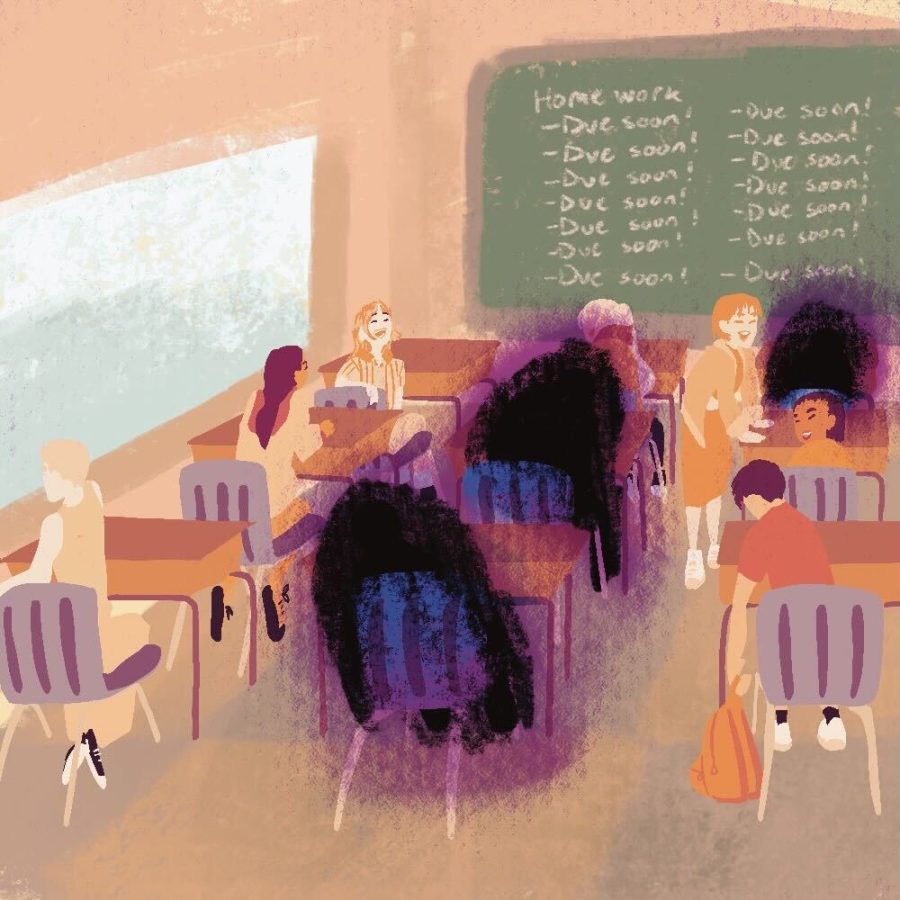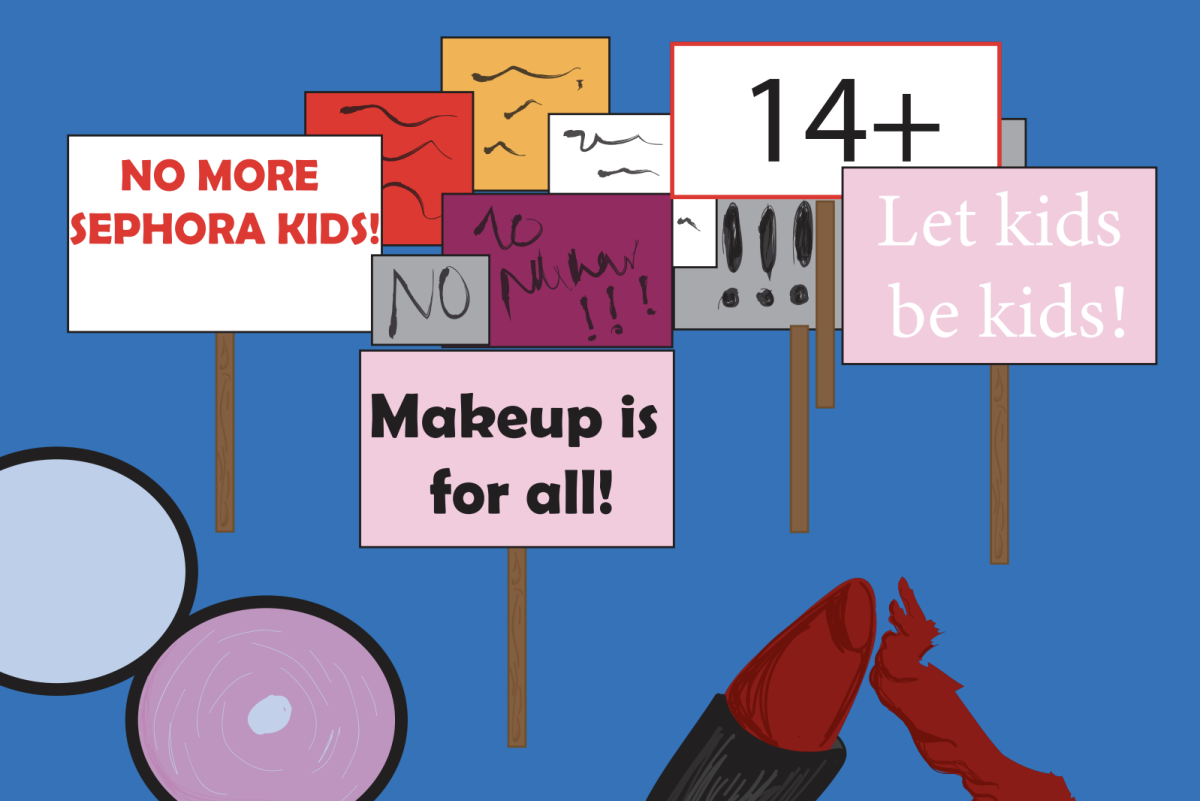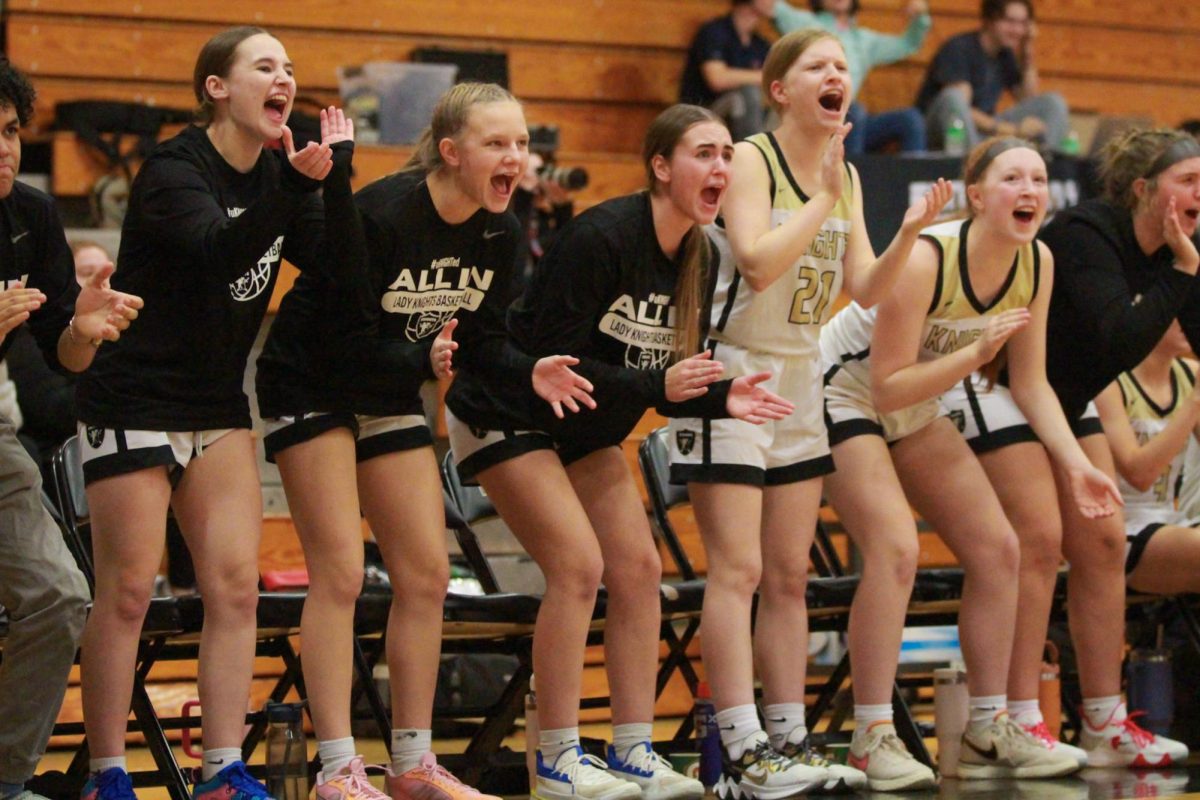With its common misconceptions such as having to watch a woman give birth and putting condoms on bananas, sex-ed is a topic generally avoided among students. Our sex education system is stigmatized by students, teachers and parents alike. It’s an awkward subject for many, but getting it over with and ignoring it is not the answer. Instead our state legislature needs to update its regulations in order to keep the curriculum helpful to all students.
For a consistently red state, our curriculum is slightly ahead of the curve by including education on consent, sexual abuse and sexual harassment. However, there are still some lacking regulations in our state’s requirements.
Continuation of education
Unfortunately, the state of Missouri does not require that schools continue to educate students on sexual development and safe sex throughout high school. If the school chooses that they will have a sexual education lesson in health class, all they have to do is check off the box and be done with it. This education is vital to students to promote abstinence, safe sex and healthy relationships. These lessons should be given to all students every year, or at least every other year, regardless of if they are in a health class or not. The reason that this is so important is because, according to a safety report done by the state of Missouri, 20.5 percent of freshmen and 26.5 percent of sophomores are sexually active. This statistic nearly doubles to 44.3 percent and 45.8 percent as juniors and seniors. By the time students are juniors and seniors it’s most likely been two to three years since they have been taught sex-ed. Simply refreshing students their junior year would be extremely beneficial.
Holes in the requirements
While our district’s curriculum follows everything state required for a sex-education system, there’s a lot of holes in what is required. For starters, it’s not legally required that the curriculum is delivered by trained instructors. This is a dangerous lack of regulation seeing as how this is some of the most delicate, important and useful education high schoolers receive. The state lacking this requirement puts students into a situation where they could possibly receive misinformation which is just irresponsible. Some health teachers in our state are trained more for a fire drill than they are to teach a sex-ed class. Along with the lack of regulation on training, there is also a lack of regulation on how often educational material has to be updated. Most of the videos that are shown in sex-ed classes are from before its watchers were even in kindergarten. These videos are not factually inaccurate, but watching a grainy video about the development of the human body adds to the already present awkwardness. These are not hard changes to make to help better educate students on how to keep themselves safe.
Puberty
Everyone remembers how awkward the elementary school talks were. The girls would go in one room, learn all about how their breasts would develop, they would get pubic hair, menstruation and all of the painful side effects that come with it. Meanwhile, the boys sit in a room learning about how their voices would begin to crack, they too would get pubic hair and how they would begin to be more attracted to those around them. These talks happen multiple times throughout elementary and middle school. However, unlike english and math, the content taught in these talks never increased in difficulty in the maturity of what was taught as students progress in age. Every student has been included in a puberty talk unless they were opted out by a parent. The issue with these talks is the huge bits of left out information for females, such as discharge, spotting, how long a period is supposed to last and different parts of the menstruation cycle.
LGBTQIA+
Schools are required to provide education on heterosexual sex. Homosexual sex education is not required. This is not surprising as LGBTQIA+ is a very recently destigmatized subject in school and society in general. Strides for inclusive education are being fought for now more than ever, adding this to our state requirements is crucial. One out of every four high school students identify as being part of the LGBTQIA+ community and yet they receive no education on how to have safe sex. Although the threat of teen pregnancy isn’t looming, the danger of sexually transmitted infections and diseases are. There are still types of contraceptives that should be used even if there is not a danger of pregnancy due to the possibility of contracting an STD or STI from any sexual partner.
In the end, our state requirements could be worse. However, when it comes to the education of students, a fully faceted view of their bodies and how to keep their body safe is vital to ensure sex education remains helpful.

- The decision of whether or not to teach sex education is left to the local school board
- Must teach about contraceptives while “Presenting abstinence from sexual activity as the preferred choice of behavior in relation to all sexual activity for unmarried pupils.”
- Teach about contraceptives, within a curriculum that promotes abstinence. Include information on sexual predators, sexual harassment, sexual violence, and consent.
-
To see the full list visit the Missouri Department of Health and Senior Services' report.

- Be appropriate for use with pupils of all races, genders, sexual orientations, ethnic and cultural backgrounds.
- Be appropriate for and accessible to pupils with disabilities; Be appropriate for and equally available to English language learners.
- Be appropriate for and accessible to pupils with disabilities.
- Affirmatively recognize different sexual orientations and be inclusive of same-sex relationships in discussions and examples.
- Teach about gender, gender expression, gender identity, and the harm of negative gender stereotypes.
- Encourage students to communicate with their parents/guardians and other trusted adults about human sexuality, and provide skills for doing so.
- Teach the value of and prepare students to have and maintain committed relationships such as marriage.
- Provide knowledge and skills for forming healthy relationships that are free from violence and provide knowledge and skills for making and implementing healthy decisions about sexuality including negotiation and refusal skills to assist students in overcoming peer pressure and using effective decision making skills to avoid high-risk activities.
- To see the full list visit the California Department of Education's Frequently Asked Questions Regarding Sexual Education.

![It’s Time to Update Missouris Sex Education Regulations [Editorial]](https://FHNtoday.com/wp-content/uploads/2023/11/Untitled_Artwork-e1700374072726.jpeg)
![It’s Time To Come Together [Editorial]](https://FHNtoday.com/wp-content/uploads/2024/03/Untitled_Artwork-1-1200x648.jpg)
![The New Board of Education Social Media Updates Are Outdated [Editorial]](https://FHNtoday.com/wp-content/uploads/2024/01/new-policy-ed-cartoon-1200x650.png)
![Francis Howell Board of Education to Review Racism Resolution [Editorial]](https://FHNtoday.com/wp-content/uploads/2023/10/Ed-Cartoon_Manfull_10.11.23-1200x747.png)
![The GAC Should Switch to Power-Ranking to Divide Sports Teams into Divisions [Editorial]](https://FHNtoday.com/wp-content/uploads/2023/03/Editorial_Cartoon_GAC-copy-e1678836392978-900x600.png)
![Romantic High School Relationships can be the Most Meaningful [Editorial]](https://FHNtoday.com/wp-content/uploads/2023/01/IMG_0549-900x527.jpg)








![Instagram Reels Takes a Win Over TikTok After Years of Downgrades [Opinion]](https://FHNtoday.com/wp-content/uploads/2024/03/IMG_0758-e1711431070794.jpeg)
![“Lift” Fails To Take off on Netflix [Review]](https://FHNtoday.com/wp-content/uploads/2024/03/Lift_VanDyne_03.20.2024-1200x900.png)


